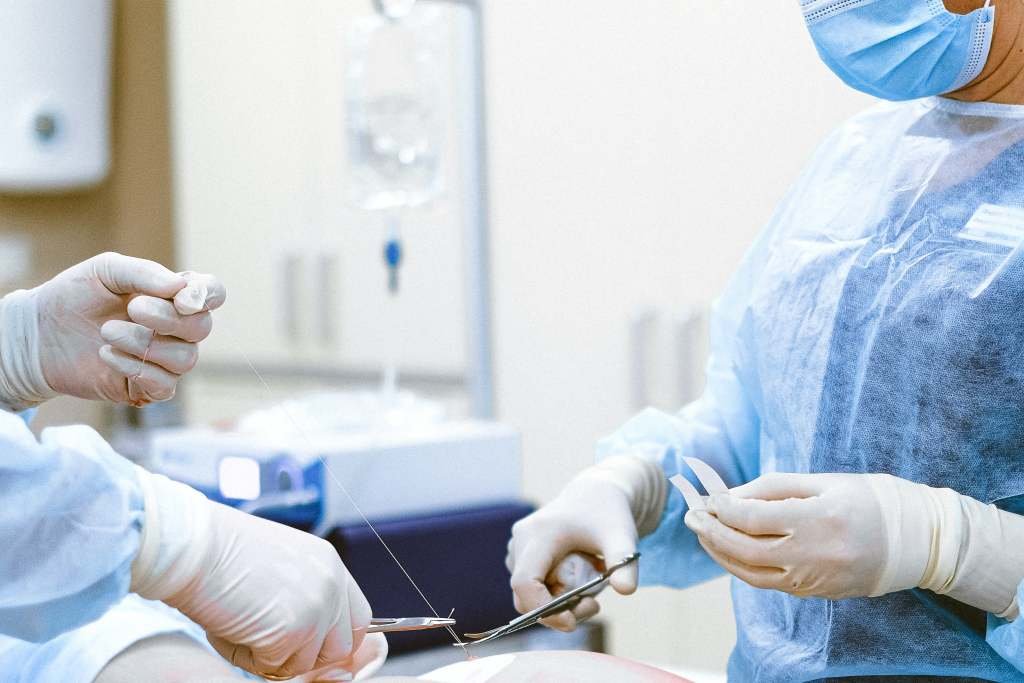
7 Side Effects of Weight Loss Surgery: Weight loss surgery, also known as bariatric surgery, is a surgical procedure performed to help individuals who are severely overweight or obese lose weight. It is usually considered a last resort option for people who have tried other weight loss methods without success and are facing significant health risks due to their excess weight.
There are different types of weight loss surgeries, but the most common ones include:
Weight loss surgery works by restricting the amount of food the stomach can hold or by reducing the absorption of nutrients in the digestive tract. These surgeries can result in significant weight loss, improvement in obesity-related conditions such as type 2 diabetes and hypertension, and an overall improvement in quality of life.
However, there are Side effects of Weight Loss Surgery. Weight loss surgery is not without risks and complications. It is a major surgical procedure and can have potential complications such as infection, bleeding, blood clots, and adverse reactions to anesthesia. It also requires significant lifestyle changes and long-term commitment to maintaining a healthy diet and exercise regimen.
Weight loss surgery is usually recommended for individuals with a body mass index (BMI) of 40 or higher (severe obesity) or a BMI of 35-39.9 (obesity) with significant obesity-related health conditions. It is important to consult with a qualified healthcare professional to determine if weight loss surgery is the right option for you and to discuss the potential risks and benefits based on your individual circumstances. Below are 7 Side effects of Weight Loss Surgery.
Weight loss surgery, like any surgical procedure, can have side effects and potential complications. The specific side effects can vary depending on the type of surgery performed and the individual’s response to the procedure. We are just exploring the common side effects of weight loss surgery. While the surgery can have transformative effects, it is important to be aware of potential side effects and complications that can arise. It’s essential to discuss these risks with your healthcare provider before undergoing the procedure. In this article, we will explore some common side effects of weight loss surgery.
Nausea and vomiting are common side effects that can occur after weight loss surgery. They are often a result of overeating, eating too quickly, or consuming foods that are difficult to digest. To prevent or minimize these side effects, it is crucial to follow your healthcare team’s dietary guidelines, eat small, frequent meals, and chew your food thoroughly. If you experience persistent or severe nausea and vomiting, it is important to consult your healthcare provider.
Dumping syndrome is a common side effect of gastric bypass surgery. It occurs when food moves too quickly from the stomach to the small intestine. Symptoms of dumping syndrome include nausea, abdominal pain, bloating, diarrhea, lightheadedness, and sweating. Dumping syndrome can be triggered by consuming high-sugar or high-fat foods. To manage dumping syndrome, it is important to avoid trigger foods and focus on a balanced diet with controlled portions. Eating smaller, more frequent meals and avoiding liquids during meals may also help prevent dumping syndrome.
Changes in bowel movements are common after weight loss surgery. Some individuals may experience diarrhea, while others may have constipation. These changes can occur due to dietary changes, reduced food intake, and alterations in the digestive system. It is important to stay hydrated, consume a high-fiber diet, and incorporate physical activity to promote regular bowel movements. If you experience persistent or severe diarrhea or constipation, consult your healthcare provider for appropriate management strategies.
Weight loss surgery can impact the absorption of nutrients, particularly in procedures like gastric bypass or duodenal switch. Common nutritional deficiencies that may occur include deficiencies in vitamin B12, iron, calcium, vitamin D, and folate. These deficiencies can lead to various health problems if left untreated. To prevent nutritional deficiencies, it is essential to follow your healthcare team’s recommended supplementation guidelines and undergo regular blood tests to monitor your nutrient levels. Nutritional counseling and guidance from a registered dietitian can also help ensure you meet your nutritional needs.
Having gallstones is another Side effects of Weight Loss Surgery. Rapid weight loss after bariatric surgery can increase the risk of developing gallstones. Gallstones are hardened deposits that form in the gallbladder. They can cause abdominal pain, nausea, and vomiting. To reduce the risk of gallstones, your healthcare provider may recommend medication or surgery to remove the gallbladder (cholecystectomy) at the time of your weight loss surgery. Following a low-fat diet and maintaining a healthy weight can also help prevent gallstones.
Another common Side effects of Weight Loss Surgery is temporary hair loss or thinning after weight loss surgery. This condition, known as telogen effluvium, is usually a result of the stress that rapid weight loss can place on the body. Hair loss typically occurs a few months after surgery but often resolves on its own within a year. To minimize hair loss, ensure you are consuming adequate protein and essential nutrients, and consider taking supplements as recommended by your healthcare provider. It’s important to note that hair loss is temporary and hair regrowth will resume in most cases.
Weight loss surgery can have profound effects on body image and emotional well-being. While many individuals experience improved self-esteem and body confidence after significant weight loss, others may gain weight again and this could affect your normal life.
These are just but a few Side effects of Weight Loss Surgery but it’s important to note that these side effects are not experienced by everyone, and some individuals may have different experiences or additional complications. It’s essential to follow the post-operative guidelines provided by your healthcare team, attend regular follow-up appointments, and communicate any concerns or symptoms you may be experiencing.